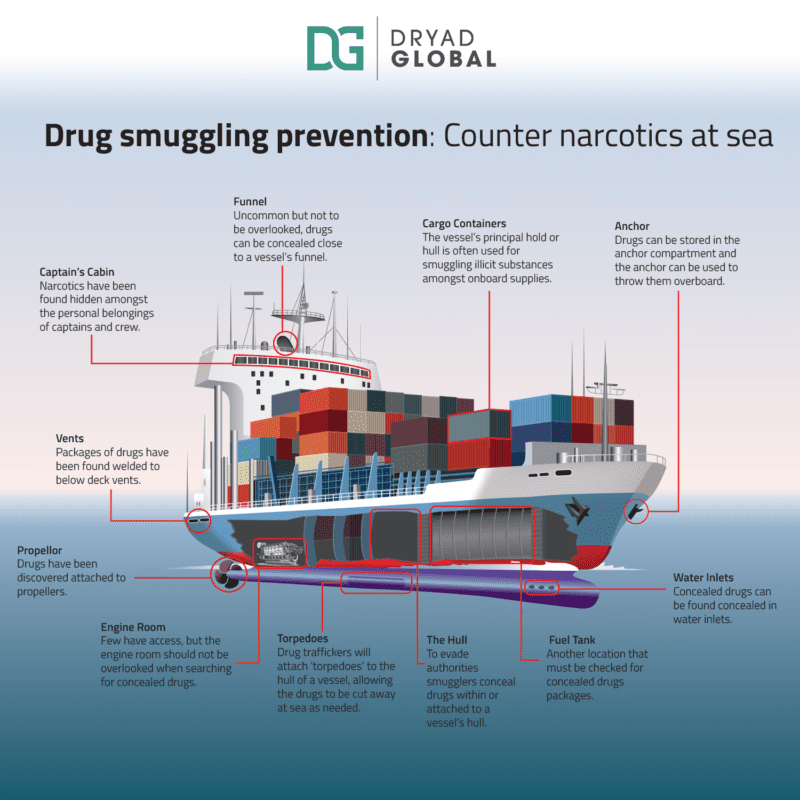The maritime industry is facing a growing challenge of drug smuggling, with a 23% increase in global drug activity from 2011 to 2021. Traffickers are using innovative tactics such as hacking customs systems to pre-clear consignments, putting seafarers at risk of unwittingly participating in illegal activities. Chris Trelawny of INTERPORTPOLICE emphasizes the need for cross-sector collaboration to effectively combat drug trafficking.
Europol’s report reveals that only 2-10% of containers are physically inspected at EU ports, creating loopholes for substantial quantities of drugs to evade detection. Operation TIN CAN, a multinational initiative, has resulted in 43 arrests and 158 drug seizures, including significant amounts of cocaine and cannabis. INTERPOL’s I-RAID initiative supports these efforts by facilitating information sharing and international cooperation.
The Port Security Project, a collaboration between UNODC, IMO, and INTERPOL, aims to enhance law enforcement and port authorities’ capabilities against security threats like drug smuggling. By assisting countries in implementing security frameworks like SOLAS Chapter XI-2 and the ISPS Code, the project strengthens port security and improves responses to security threats, including drug trafficking. Additionally, the EU’s investment in the Certified Pick Up platform at the Port of Antwerp-Bruges promises to enhance container transport management and reduce fraud risks.



